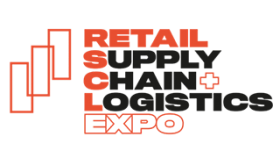Since 1987, Mantair Ltd has been providing trusted, compliant, and environmentally responsible wastewater treatment solutions across the UK.
Wales: a global leader in waste management
Turning our attention to Wales, Government Business magazine talks to Hannah Blythyn, Deputy Minister for Housing and Local Government, about the 2020 ban on single use plastics in Wales and ambitions for zero waste by 2050
1. The recent ban on a range of single-use plastics was labelled as highlighting the Welsh Government as being a world leader in the area of recycling. What have been the standout measures, undertaken by the Welsh Government, that have enabled Wales to ‘lead the way’?
We have had a lot of standout measures here in Wales, including being the first UK nation to introduce a carrier bag charge, the only UK nation to significantly reduce household food waste, one of the few nations in the world to have a universal weekly separate household food waste collection, and successfully enabling consortia of local authorities to jointly procure infrastructure for food and residual waste treatment.
We have invested not only in the facilities at our recycling centres, with many sites now having handle over 20 different waste streams. But also in how and what materials we collect. This has seen us expand recycling collections to include items such as glass, paper, card, metal cans, and plastic bottles, pots, tubs and trays. This has helped us to reach our statutory minimum targets and has seen Wales become a global leader.
2. This also forms part of the wider move towards zero waste by 2050. How achievable is that target?
We have seen Wales transform from a nation which recycled less than five per cent of its municipal waste, to become an international leader that now recycles 63 per cent of our waste. This gives us a tremendous platform to build on.
We published a consultation document - Beyond Recycling - late last year which actively engaged the people of Wales on how we should move to a more circular economy, that keeps resources in use for as long as possible. We held a series of face-to-face events with public and other stakeholders to hear first-hand their views on how we can meet not just our zero waste target, but also the vital contribution it makes to action on the climate emergency.
As part of the consultation, there was a focus on reducing resource use, tackling single use plastic, reducing food waste and further increasing recycling after 2025. These actions will help support the move towards a circular, low carbon economy and make our resources go further and I have no doubt that we can meet the target of zero waste by 2050.
3. Given the length and beauty of Wales’ coastline, how serious a problem is plastic pollution to the Welsh region?
Plastic pollution effects every environment in Wales, particularly our beaches and coasts which can cause harm to marine life. We are committed to ensuring Welsh seas are clean, healthy, safe, productive and biologically diverse.
Marine litter is a global issue, which needs collaborative action at both the local and regional scale to take preventative action, and tackle the issue of litter before it enters the marine environment. This is why we are committed to delivering the UK Marine Strategy, working with partners at an international level to achieve and maintain Good Environmental Status. In addition, last year we developed the Wales Clean Seas Partnership and began implementing the Marine Litter Action Plan for Wales; designed with prevention, collaboration with partners and finding a long-term solution at its core.
Littering in all its forms is unacceptable and one of our aims is to ensure that everybody takes responsibility for their litter and that in Wales we take full responsibility for the waste we generate that cannot be recycled. This means that we must dispose of it properly, so it does not end up blighting our countryside and marine environments or becoming a problem elsewhere. We will be taking this work forward through our new Litter Prevention Plan and in the wider implementation of Beyond Recycling, our circular economy strategy.
4. The best way to make a circular economy in Wales reality is to keep resources in use for as long as possible. What other measures are aiding the government in pursuing this?
The consultation process we have undertaken has helped shape how we are planning on moving to a circular economy. One of the things we sought views on specifically was using procurement to support the circular economy, for example by prioritising low carbon and recycled goods in public purchasing which also helps to support locally produced products.
Other measures were are pursing, which received positive responses in the consultation, included our work with the Department for Environment, Food & Rural Affairs (Defra) on an Extended Producer Responsibility scheme for packaging and a Deposit Return Scheme for drinks containers. We are also considering introducing charges on drinks containers.
One specific action we are taking is on plastic waste, where we’ve already announced our intention to ban several single use plastic items. This will not only support the circular economy by keeping resources in use but it will help us to prevent litter from occurring in the first place and support our refill nation agenda.
We have recently announced the second round of our Circular Economy Fund for Local Authorities, publicly funded bodies and businesses. This fund directly supports our circular economy ambitions by helping fund projects that increase the use of recycled materials, promote re-use and aid the green recovery.
5. Wales currently has very respectable household waste recycling and municipal waste recycling rates (the third best in the world for the former). How is the government working with businesses, households and the construction industry to work towards a 100 per cent recycling rate?
The Ellen MacArthur Foundation tell us that 45 per cent of global carbon emissions come from the products and services we consume. Unless we value our resources and manage them differently then we will not be able to meet our carbon reduction aims. This means we need to work collaboratively to ensure people and households can make the necessary choices to reduce and recycle waste when they buy products. We can do this through schemes like the Extended Producer Responsibility, which encourage businesses to produce packaging that minimises waste and is of a higher environmental standard.
A number of businesses engaged with us during our consultation on how we can progress to a circular economy. They highlighted concerns around long supply chains and the inability to access sustainable packaging. This will be something we will continue to look at and address to ensure our circular economy approach can support better resilience and shorter supply chains.
The circular economy approach also offers opportunities beyond environmental benefits. Working collaboratively with the business sector and colleagues in Business Wales and Food and Drink Wales, has allowed us to reach SMEs across Wales and offer start-up businesses the chance to sign up to the ‘Green Growth Pledge’. We recently consulted on plans to introduce business recycling measures, which would require businesses and public sector bodies to follow what households in Wales already do and separate their different streams of waste for recycling.
Households are vital if we want to meet our targets and we need every household in Wales to work with us on this ambition. We know that 50 per cent of household waste that currently goes to landfill or incineration is made up of materials that could be recycled. To tackle this we will be launching an awareness campaign to encourage not only recycling but to recycle products people don’t typically think can be recycled such as shampoo bottles.
If we can divert recyclable material away from landfill Wales would have a recycling rate well above 80 per cent.
Event Diary
Retail Supply Chain & Logistics Expo returns to Excel London across 12-13 November, once again bringing together the world of logistics, supply chain, eCommerce and retail innovation for two dynamic days of opportunity.
Every sport, from grassroots football to world-class tournaments, depends on one constant: high-quality playing surfaces and well-maintained green spaces.
Tickets: Free registration available at www.retailscl.com
The Retail Supply Chain & Logistics Expo is the UK’s leading event for retail supply chain and logistics professionals, showcasing the latest innovations in fulfilment, 3PL, AI-driven automation, and warehouse technology.
Supplier Profiles
Bauder Accepts Keys to its New UK Distribution Centre at Gateway 14
Bauder marked a major milestone in its UK expansion with the official handover of a brand
Words of World: Bridging language barriers with excellence
At Words of World, we specialise in professional translation and interpreting, d
Latest Features
The British Institute of Cleaning Science (BICSc) and the Cleaning & Support Services Association (CSSA) have successfully completed a groundbreaking project aimed at exploring the future of cleaning. This collaboration marks a significant milestone in the cleaning industry, reflecting a shared commitment to embracing innovation with confidence.
The Crown Commercial Service’s (CCS) new framework on Language Services (RM6302), dealing with translation, transcription and interpreting, is live, running from 7th May 2025 to 6th May 2028.










